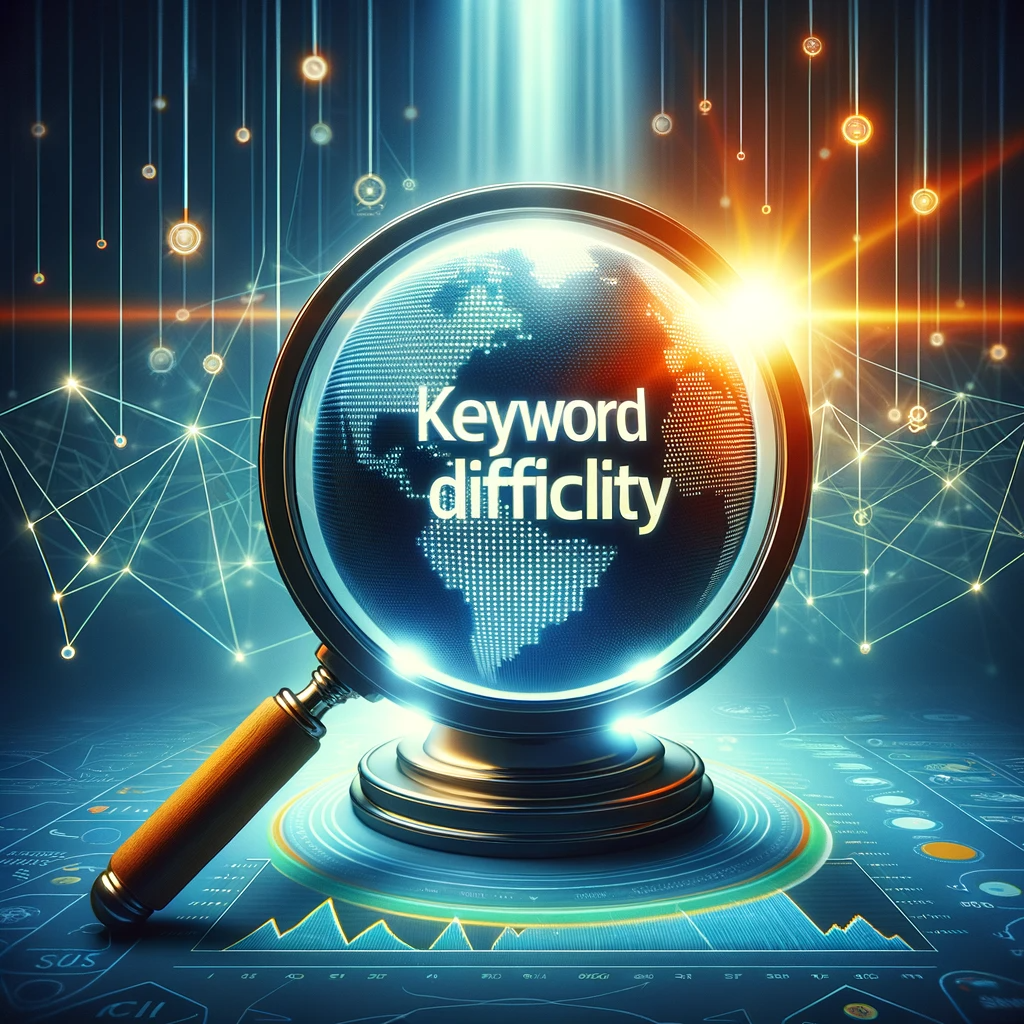If you’re just starting out, the vast sea of SEO terminologies and strategies might seem overwhelming. In this article, we will try to break it down for you, step by step. Today, we’ll talk about one of the core aspects of SEO – keyword difficulty. This concept is much needed of your digital marketing strategy.
What is Keyword Difficulty?
Imagine you’re trying to get a reservation at a popular restaurant. Some days, it’s relatively easy, while on others, it seems nearly impossible because everyone wants a table. In the same way, for SEO, keyword difficulty represents this demand. It analyses how hard it will be to secure a ‘reservation’ or rank on the first page of search engine results for a particular keyword. Why is ranking on the first page crucial? Because it’s often joked that the best place to hide something you don’t want to be found is on the second page of Google – that’s how rarely it’s visited.
What is Keyword Difficulty Score?
Keyword difficulty is not just about numbers; it’s a spectrum that guides your SEO strategy. Let’s navigate through this spectrum and understand the approach you can take for each:
-
-
0-14: Very Easy
These are the golden keywords for beginners. With basic SEO efforts, one can easily rank for such terms. It’s like fishing in a pond. With just a simple rod and bait, you can make a catch!
Approach:
- Start with basic on-page SEO optimizations.
- Ensure content is original and relevant to the keyword.
- Monitor and adjust based on search engine feedback.
-
15-29: Easy
These keywords require a tad more effort but are still quite attainable for new websites. Optimizing content is crucial. It’s a serene lake. With a slightly advanced fishing technique, there’s a good chance for a catch.
Approach:
- Prioritize well-researched content, including relevant headers and meta tags.
- Begin link-building with local directories or niche blogs.
- Optimize images and page load speeds.
-
30-49: Possible
A bit more challenging, these keywords demand well-structured content and some level of SEO expertise. It’s like fishing in a river with changing currents. With the right strategy, the catch is possible.
Approach:
- Regularly update content for freshness.
- Engage in community forums or discussions to get quality backlinks.
- Make use of internal linking to guide users and search engine bots.
-
50-69: Difficult
You’ll need significant expertise, high-quality backlinks, and authoritative content to rank here. Venturing into the deep sea. With premium gear and expertise, big rewards await.
Approach:
- Deep dive into high-quality, long-form content to establish authority.
- Collaborate with influencers or reputed sites in your niche for backlinks.
- Regularly audit and remove low-quality or toxic backlinks.
-
70-84: Hard
These keywords demand robust SEO strategies. Tough, but not impossible.Almost like Fishing during a storm. Only the experienced dare, but with the right strategy, success is attainable.
Approach:
- Position yourself as an industry thought leader through webinars, podcasts, or guest articles.
- Engage in advanced link-building strategies like skyscraper content.
- Monitor keyword rankings closely and adjust strategies accordingly.
-
85-100: Very Hard
You’ll need significant expertise, high-quality backlinks, and authoritative content to rank here.The challenge of catching the legendary fish. It demands unparalleled skill and dedication.
Approach:
- Prioritize brand-building to gain organic backlinks and mentions.
- Collaborate with top-tier websites in your domain for guest posts and features.
- Continuously innovate content strategy, focusing on emerging trends and user intent. Analogy: The challenge of catching the legendary fish. It demands unparalleled skill and dedication.

Why Keyword Difficulty Matters?
Crafting a Pinpointed Content Strategy
Understanding keyword difficulty helps tailor your content efforts. It ensures you’re not trying to climb Mount Everest when you’re just equipped for a hill.
Resource Allocation with Precision
Efficiently channel your time, energy, and money into keywords that align with your current SEO capabilities.
Goal Setting with Clarity
By gauging keyword difficulty, you can set clear, realistic milestones, ensuring a structured and steady ascent in the SEO realm.
Keyword difficulty is more than just a number. It’s a roadmap that guides your SEO strategy, helping you navigate the vast digital landscape. Whether you’re a budding blogger or an established brand, understanding keyword difficulty scores can set you on the path to SEO success.
Remember, SEO is a marathon, not a sprint. With patience, persistence, and a solid grasp of keyword difficulty, you’re well on your way to the top of the search results!
-



